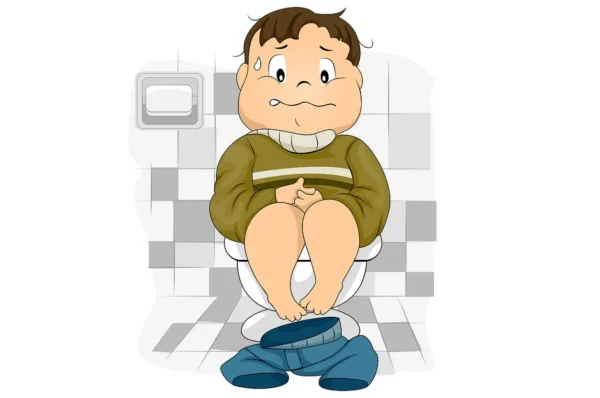The following list includes common bladder irritants found in many foods and drinks. These may contribute to bedwetting in children with sensitive bladders, so it can be helpful to monitor them in your child’s diet.
1. Caffeine
Found in sodas, chocolate, tea, and energy drinks. Caffeine is a known diuretic, which means it increases urine production.
2. Carbonated Drinks
Sodas and even sparkling water can be a source of bladder irritation. Nearly all carbonated drinks contain dissolved carbon dioxide, creating an acidic solution that may irritate the bladder and increase the urge to urinate.
3. Artificial Sweeteners
Used in sugar-free snacks, drinks, gum, and candies. Ingredients like aspartame and saccharin can lead to the production of acidity that also irritates the bladder and can trigger more frequent urination.
4. Citrus Fruits and Juices
Oranges and some citrus fruits can raise acidity in the bladder. This increase in acidity may lead to discomfort, sensitivity, and an urge to urinate.
5. Tomato Products
Found in sauces, ketchup, and pizza. Tomato products are acidic and may irritate the bladder lining in children with a bladder sensitivity.
6. Dairy Products
Milk, cheese, yogurt, and other dairy items. Some children may have sensitivities to dairy that impact bladder control. For those with dairy sensitivity, having milk at night may increase the likelihood of bedwetting.
7. Spicy Foods
Chili, salsa, and certain flavored snacks. Spices can irritate the bladder, creating a sensation of urgency.
8. Artificial Colors and Flavors
Common in candies, sodas, and processed snacks. Artificial additives can sometimes lead to bladder sensitivity.
9. Sugary Foods
Found in candies, desserts, and sugary drinks. Sugar can stimulate urine production, increasing the chances of nighttime accidents.
10. Acidic Foods
Vinegar, pickles, and sour candy. High acidity can lead to bladder sensitivity and more frequent urination.
PLEASE NOTE: While acidic foods can sometimes be common triggers, the body is complex, and “acid in” doesn’t always equate to “acid out.” Many foods considered “safe” may still contain acid, and some trigger foods may not contain acid at all. The key is to avoid your child’s personal trigger foods and focus on a healthy diet.








2 thoughts on “Bladder Irritants: Their Impact on Bedwetting”
Hi Ginny,
Just wondering, does ADHD medication (Ritalin) affect bed wetting?
Thanks
Carolyn
Hi Carolyn,
There isn’t strong evidence that Ritalin directly causes bedwetting. What we do know is that ADHD and bedwetting often occur together, usually because of brain–bladder communication and sleep patterns rather than the medication itself. However, Ritalin can sometimes cause constipation, and constipation is a big factor that can make bedwetting worse. Since constipation is often misunderstood, it can help to keep a simple diary for two weeks of your child’s poo type, using the ERIC Poo Checker: https://eric.org.uk/poo-checker/ If you’ve noticed changes since starting medication, keeping an eye on bowel habits and checking in with your child’s doctor can really help guide the next steps.